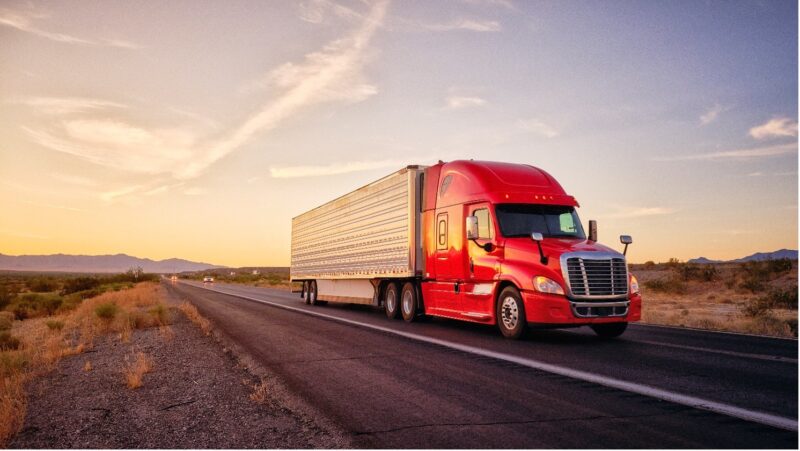Personal cars are front and center in the push to electrify transport, while lorries and vehicles that move perishable goods receive much less attention.
This is despite the fact that refrigerated vehicles are core to the cold chain and account for substantial emissions.
According to 2019 data from the US Environmental Protection Agency, national greenhouse gas emissions would fall by 7% if all medium and heavy duty lorries were to be electrified, assuming battery charging sources are renewable.
But while the uptake of electric vehicles (EVs) is predicted to increase, with major car producers like Nissan and Vauxhall committing to manufacturing plants, the sales of fossil fuel powered goods transport vehicles are reaching record levels.
Heating and cooling expert Trane Technologies argues that to achieve net zero by 2050, this imbalance must be corrected.
“We’ve seen the need for last mile delivery solutions continue to grow as consumers leverage e-commerce and home delivery of perishable goods, and as healthcare providers work to distribute vaccines,” said Karin De Bondt, president of Thermo King Americas for Trane Technologies. “With rising demand comes rising need for more sustainable options, in both last mile and long-haul logistics. In transport, electrification is the best path, and it’s achievable.”
A growing decarbonisation opportunity
Perhaps the biggest benefit provided by vehicles that transport perishable or degradable cargo is the “cold chain”, where products – from food to pharmaceuticals – are transported through the entire logistics network at the required temperature, retaining shelf life and maintaining safety and quality. In the UK alone, estimates indicate there are around 100,000 refrigerated vehicles on the road, demonstrating the sheer size of the sector and thus the need for an energy transition.
Electrification can not only sizeably reduce direct vehicle carbon emissions in line with 2050 net zero targets, but also offers more consistent regulation of temperature, meaning there is less food loss from source to store. With experts citing food loss among the significant contributors of greenhouse gas emissions, it’s another important factor in achieving carbon reduction goals.
Transport refrigeration is in the midst of change brought on by technological innovation from manufacturers, sustainable practice goals for fleets and lower emission requirements by regulators.
The EU has established a goal to ban the sale of petrol and diesel cars by 2035.
In the US, the state of California is currently readying targeted zero-emission requirements for transport refrigeration units sold or operated in the state. “California is done with combustion. We are going to show the world the path forward,” said Lea Yamashita, air pollution specialist at California Air Resources Board (CARB), where she is managing the agency’s effort to include transport refrigeration in a clean energy transition.
A cleaner road ahead
Trane Technologies is leading the way in electrifying lorry and trailer refrigeration units and its business, Thermo King, has committed to offering a fully electrified zero-emissions solution in every segment of the cold chain.
Recently the company announced the E-200, a fully electric, zero-emission refrigeration unit for small lorries, operating at temperatures down to 0 degrees Fahrenheit and powered by a lithium-ion rechargeable battery pack. The vehicle is compliant with sound regulations, is enhanced through smart connected technology, and is already being used in the supply chains of international retail leaders Walmart and Tesco.
“We have the largest range of zero and low-emission transport temperature control solutions in the industry,” said Francesco Incalza, president of Thermo King EMEA for Trane Technologies.
In 2019, Allied Market Research valued the global electric lorry market at $422.5 million and projected a more than four-fold increase by 2027. Over the next three years, Trane Technologies are investing more than $100 million in electrification and zero-emission solutions within the transportation sector.
“By 2023, Thermo King will have an electric solution in every segment of our end-to-end cold chain solutions. The E-200 represents the next generation of all-electric refrigeration units that can help decarbonise our global supply chain,” added Incalza.
Environments and economies are depending on sector transition
Transition in this already very complex sector won’t come without significant challenges. As it stands now, small and mid-size lorries are further down the road in their transition to electric, with slower progress in LGVs.
An even more pressing social need for sustainable technology is in developing economies, where the presence of cold chain infrastructure remains relatively immature – representing an intensified opportunity to implement sustainable cold chain solutions before fossil fuels take a firm foothold.
It’s these same under-served communities that have the most to gain from a more efficient cold chain by reducing food loss and generating more equitable economic prosperity and well-being as a sustainable long-term outcome.
This post was sponsored by Trane Technologies. See our editorial guidelines for what this means.
